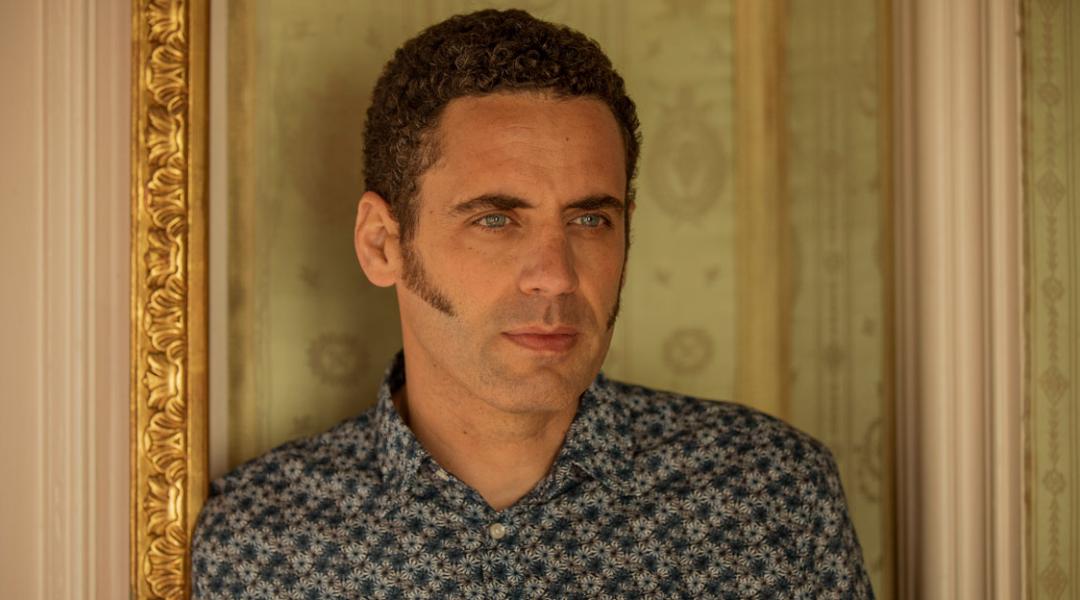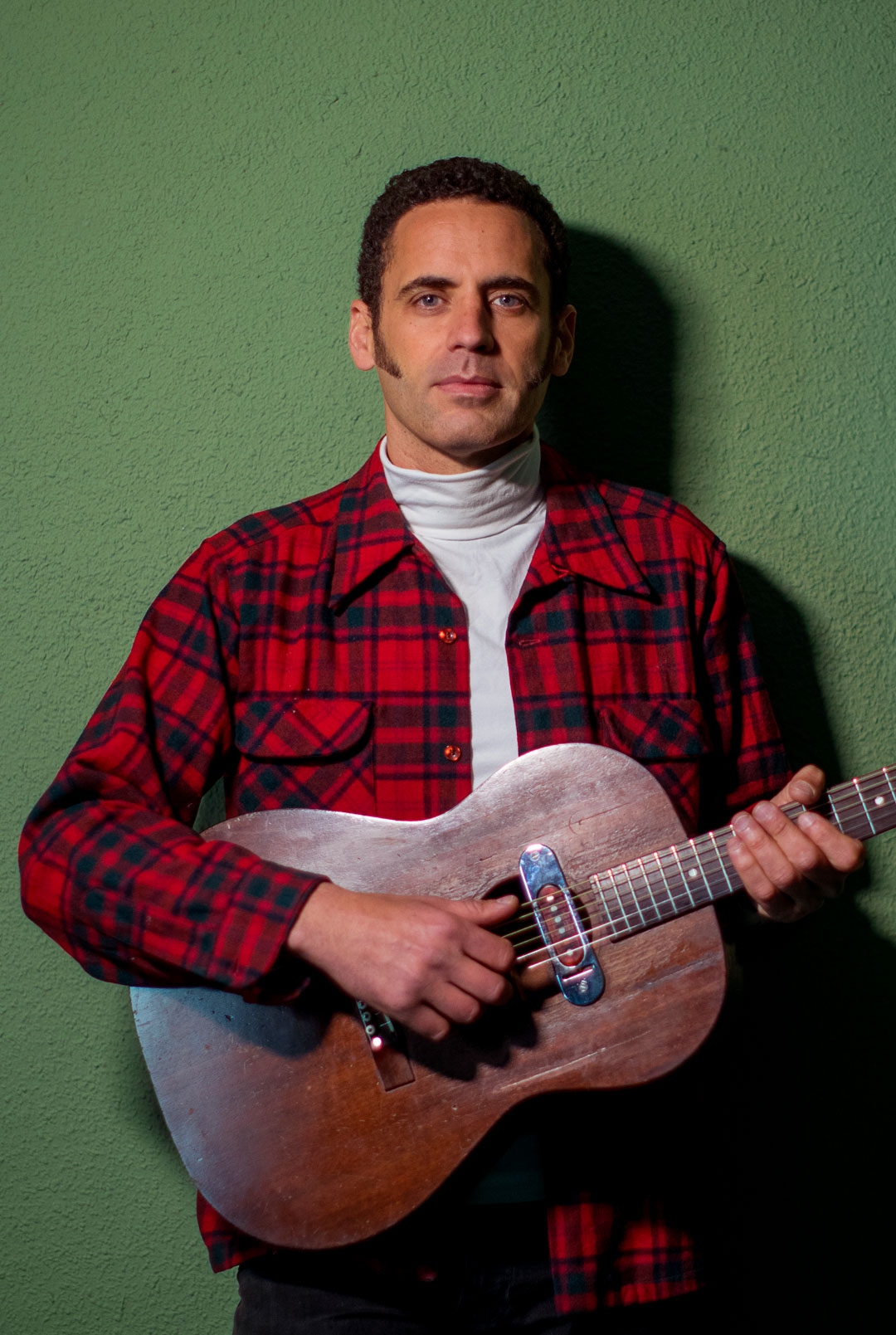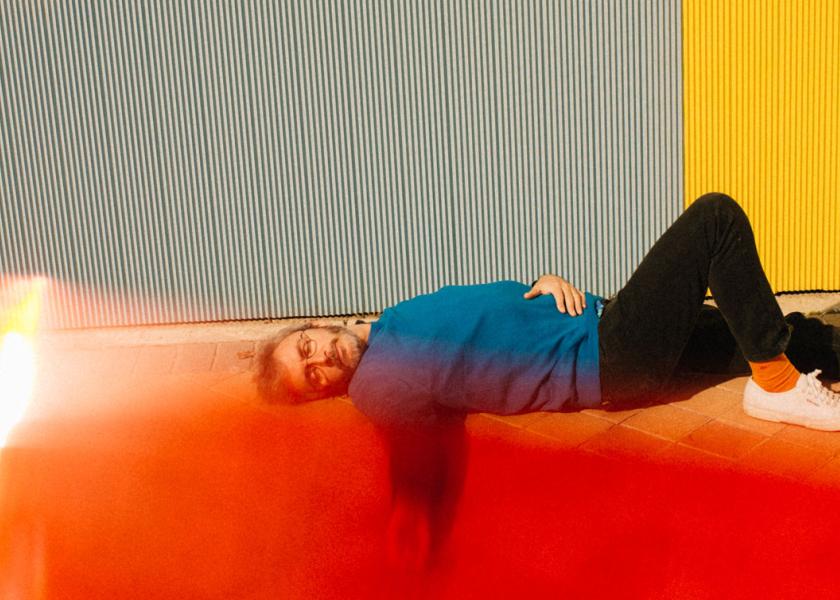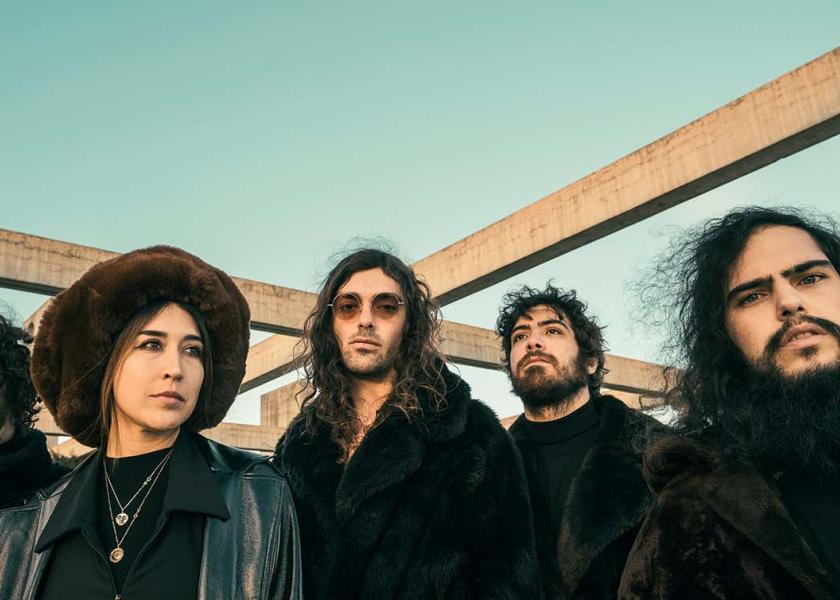Depedro
A ground wire

Depedro’s lyrics are inspired by everyday life, as he himself confesses. Which lines up with an artist who’s always kept his feet firmly on the ground. But his sound, which draws from many influences, has the power to transport you to faraway lands: Latin America, North America, even Africa. A musical journey that is the result of the connections he’s established throughout his career.
Jairo Zavala (Madrid, 1973) considers himself “a labourer of music”. As he himself admits, his career hasn’t been dazzling. Thirteen years passed between his beginnings in the band La Vacazul, circa 1995, and the launch of his first album as Depedro. A time this artist used to learn about and get to know this profession, but also to establish connections, like with Amparo Sánchez (Amparanoia) or the band Calexico, who changed his life. “Calexico opened many doors for me, and I don’t just mean in terms of contacts, but also doors in my mind that were closed and that the band opened by encouraging me to play a new instrument or to produce a song,” he remembers. At MadBlue Festival —an event, 7th and 8th of October at the Parque del Oeste (Madrid), in collaboration with Iberia, which is part of the official agenda for the celebration of Hispanidad— he will be reunited with his dear Amparo, but also with other artists he’s collaborated with, like Corizonas or Santi Balmes (Love of Lesbian). “How wonderful to coincide! Whenever you have the chance to spend time with a fellow musician, you learn from them, from how music sounds through their hands and voice,” he celebrates. Depedro is still wearing what he calls his “apprentice’s robes”.
Are Depedro, the musician, and Jairo Zavala, the person, vastly different?
There are differences. Jairo Zavala is much more grounded. Whereas Depedro has an artistic side which has allowed me to connect with people I never thought I would, and I love that.
Your father was born in Peru and your mother grew up in Equatorial Guinea. Was it inevitable for your music to become a melting pot of influences?
I don’t know, but I’m sure that a lot of what I listened and danced to at home as a child has made an impression on my songs. During a good chunk of my career, this wasn’t the case, because I played more rock music in keeping with my age and my generation.
Despite drawing from many influences, your music has found its own sound. Was this a natural process?
This is a daily battle. The hardest thing in music is to have your own voice, your own identity. You dream of achieving it, but you can’t chase it, it’s something that just happens. I have quite a lot of experience and have played many genres, so I’ve learnt to restrain myself because you can’t play them all, you run the risk of too many ingredients overpowering your music. Slowly, I’ve learnt what I need to avoid to let my voice, my identity, shine.
“Keeping my ‘apprentice’s robes’ as spotless as possible has allowed me to fill my suitcase with melodies and stories from each of my travels”
You’re about to fly to Chile. What does it mean to an artist like you, who’s so heavily influenced by Latin-American music, to play there?
This time, I’m going to take part in the presentation of a documentary (La cinta perdida) made by Luis Alberto González Arenas, a Mexican friend. The story is based on an unpublished recording of Víctor Jara. It means a lot to me to go to Latin America because it’s an endless source of inspiration and learning. I grew up in Spain, but half of my family lives there, so I’m always keeping an eye on that region.
Your career is full of travels. Musically, have you used them to soak up other sounds and tackle prejudices?
I’ve always been aware that our reality is not the only one there is and that there are many gazes and ways of feeling. I’ve experienced this since I was little and, in my case, it sparked my curiosity. Keeping my apprentice’s robes as spotless as possible has allowed me to fill my suitcase with melodies and stories from each of my travels. Things that make you as a person, but if they end up in songs or not is another story.
Before launching your solo career, you were part of many bands. What’s it like being on the other side, leading one?
One of the advantages is that now you don’t have to ask anyone what the next step is, but that means spending all your time taking decisions, which is essential in our world because it’s what defines your path. That is the big difference, which, instead of having to agree on them, you have the responsibility of taking them alone. You can’t blame anyone else (laughs).

Depedro will play at MadBlue Festival alongside old acquaintances, like Amparanoia. © Juan Pérez Fajardo
MadBlue Festival is an event that aligns with sustainable development. Is the fight against climate change an inevitable commitment?
Totally, it calls on all of us. Climate change is a tsunami that is coming for us. If taking part in this festival helps to open someone’s eyes to this phenomenon, I’m delighted to do my bit.
After MadBlue, Calexico will play in Madrid (13th of October). Where do you see the talent that they saw in you now?
Firstly, thanks for saying that they saw talent in me. I think it was the Iberian ham and wine we shared (laughs). I see a lot of talent, especially in upcoming generations. I’ll give you a name: Gustavo Guerrero, who has a personal project under the name Augusto Bracho. I don’t just admire him as an artist, I’ve also asked him to produce my next album (which I’ve always produced myself up until now), out next year.
Your relationship with music is quite self-taught. In this sense, how much talent and how much work are behind your success?
I spent 18 months taking guitar lessons with Chema Saiz and it’d be unfair not to mention him, because he helped me a lot. They say that skill can become an obstacle and, sometimes, when people are skilled but not disciplined, they don’t manage to grow their talent. I consider myself a labourer of music and, if I’ve been lucky enough to move someone with it, that’s wonderful.
Speaking of talent, what does that word mean to you?
Talent is wonderful because it’s one of the few things in the world that money can’t buy; it’s also ungovernable. I think that, in the end, it’s related to a series of well-taken emotional decisions.
“Talent is wonderful because it’s one of the few things in the world that money can’t buy; it’s also ungovernable”
You’ve always admitted to being slow at songwriting. Is it a case of being hard on yourself? What must a song have to pass your screening?
It takes me a long time because I find it increasingly hard to feel moved by what I do, maybe because of the years of experience I have. I don’t feel the same way about what other people do. And that’s what a song needs to have, it needs to connect with me, move me, because if not it’s really hard to share it and defend it.
Tell us what inspires you when writing songs.
You need to stay awake. You need to be aware of what your colleagues are doing, for example. To be stimulated, especially by culture —not only by music—, which is a must-have source of inspiration, and hope it leaves an impression on you. But, apart from that, what I’m most inspired by is what happens around me, mundane, everyday life; that is often what we struggle to see. There are super powerful stories around us.
Throughout your career, you’ve been true to yourself and have kept away from trends. Do you think your fans value this especially?
I can’t say because I’ve never been intentional about it. Nobody has the key to what you have to do, in fact, we start by learning what not to do, and I find that more interesting. My career hasn’t been dazzling, but I’ve never been interested in going fast because, what do I do when I get to the finish line? The most interesting part is the process.

